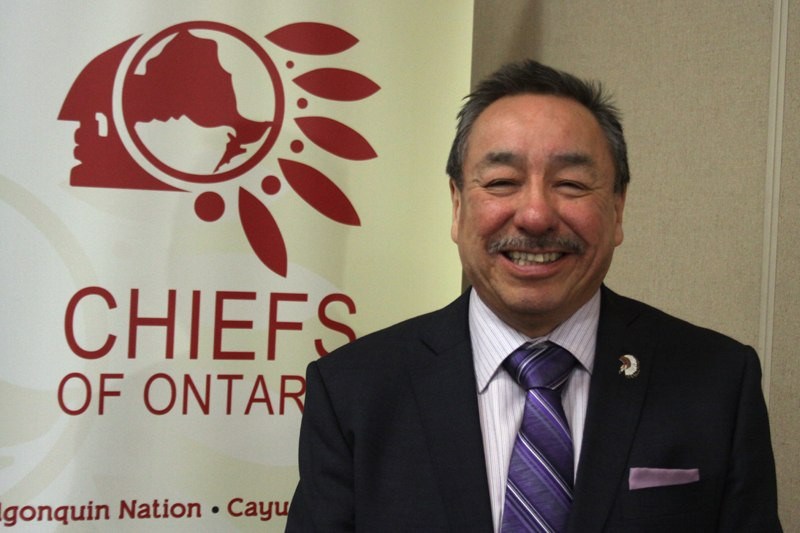THUNDER BAY -- Jurisdiction is the top issue when it comes to the future of First Nation education, says Ontario's regional chief.
"If you don't have any control over your destiny, if somebody decided that for you, you will never know where you'll end up,” said Stan Beardy Thursday at the Chiefs of Ontario Indigenous Education: Gateway to Freedom Summit at the Victoria Inn. “You will cease to be who you are."
The two-day summit has First Nation leadership, educators and school boards gathered in the city to examine the First Nation Control of First Nation Education Act, also known as Bill C-33, which has been stalled by the federal government in the wake of Assembly First Nations' national chief Shawn Atleo's resignation last week.
Beardy said they want to hear what problems people have with the bill as well as what they want to see in education legislation.
"The major problem we heard is it does not recognize our inherent right. It does not recognize our jurisdiction," he said.
The last time education legislation was imposed on First Nations was the residential school system and Beardy said people are still suffering from that.
"It was disastrous for everybody," he said. "If this legislation is imposed on us without proper consultation, without our support and approval, it will create problems for us."
What the chiefs are looking for in education legislation is authority to incorporate their concepts - to reflect their culture and values.
With the bill on hold, the First Nations now have to get organized, said Gordon Peters, the grand chief of the Association of Iroquois and Allied Indians.
Peters, who holds the education portfolio for the Chiefs of Ontario, said the challenge is now figuring out exactly what they don't support in the bill and what they want to see instead.
"Across the country, we're different nations of people. We have different histories. But I think we all have something in common - we want something better for our children and that has to include better funding to be able to help support our children," he said.
Ideally, Peters would like to see Prime Minister Stephen Harper withdraw the bill and start negotiating legislation that will help First Nation children and what's going to move it forward is if people get involved.
"We arranged this summit to hear the voice of the people," said Peters, noting the summit is a starting point to find out what Ontario communities want to see in the legislation.
That strategy will then be brought to the national level, he added.
